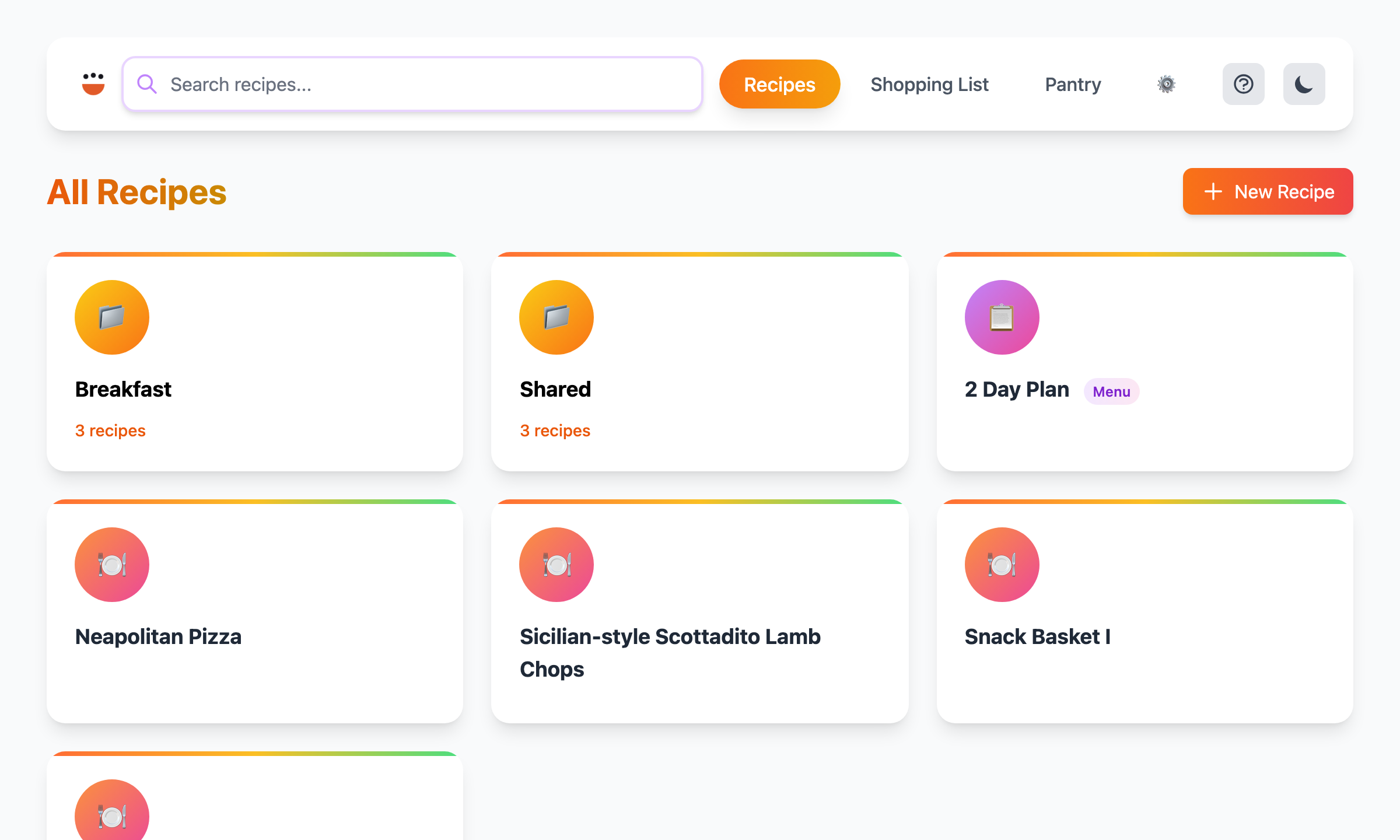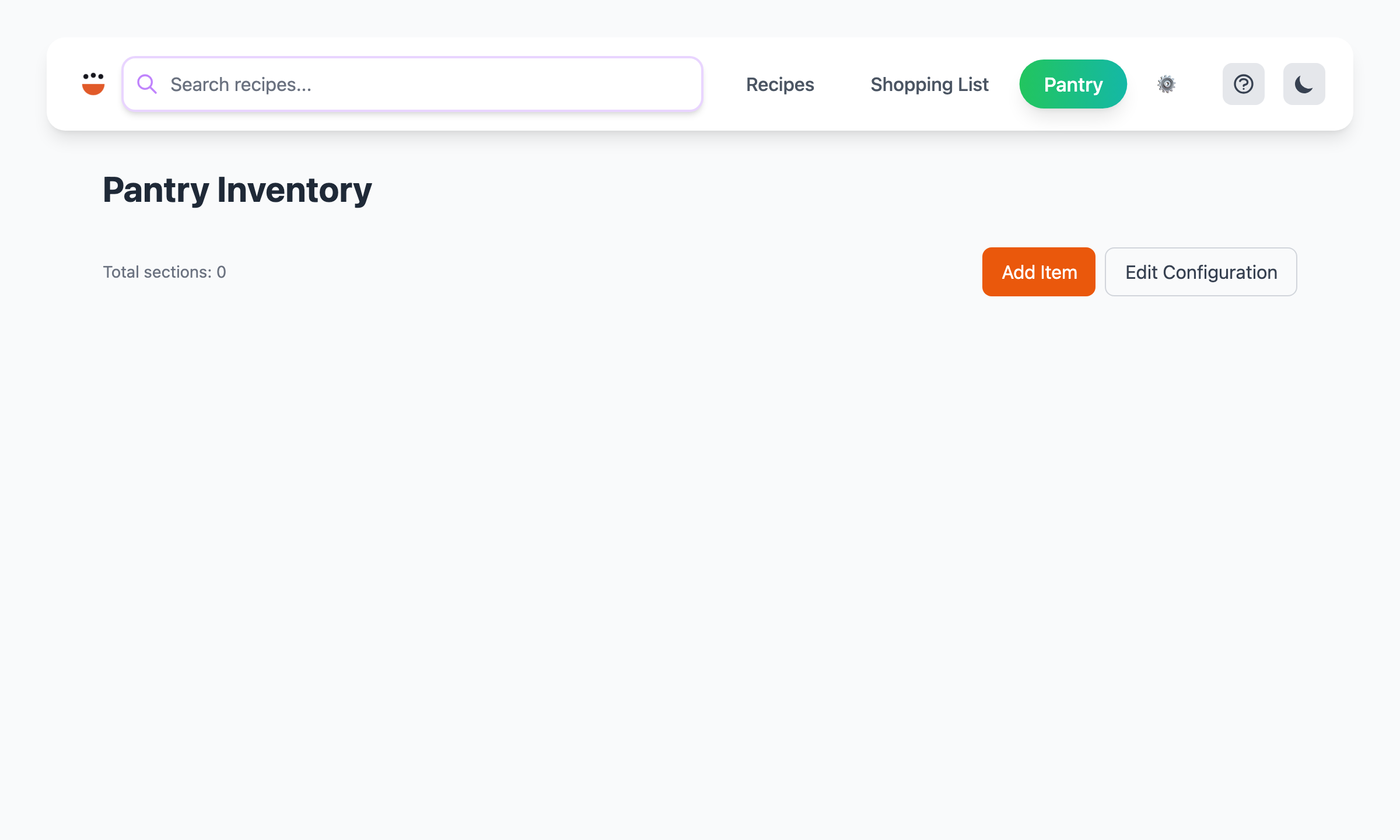Recipe
Parse and display Cooklang recipe files.
Usage
Arguments
| Argument | Description … |
|---|
A command-line interface for managing and working with Cooklang recipes.
| Command | Alias | Description |
|---|---|---|
| recipe | r | Parse, validate and display recipe files |
| shopping-list | sl | Generate a combined shopping list from recipes |
| server | s | Start a web server to browse recipes |
| search | f | Search through your recipe collection |
| import | i | Import recipes from websites |
| report | rp | Generate custom reports using templates |
| doctor | Analyze recipes for issues | |
| pantry | p | Manage and analyze pantry inventory |
| seed | Initialize with example recipes | |
| lsp | Start the Language Server Protocol server | |
| update | u | Update CookCLI to the latest version |
| Option | Description |
|---|---|
-v, --verbose... | Increase verbosity (-v info, -vv debug, -vvv trace) |
-h, --help | Print help |
-V, --version | Print version |
For the Cooklang markup language, see the language specification.
Parse and display Cooklang recipe files.
| Argument | Description … |
|---|
Generate a combined shopping list from one or more recipes.
Start a local web server to browse and view your recipe collection.




Search through your recipe collection for matching text.
Import recipes from websites and convert to Cooklang format.
Requires the OPENAI_API_KEY environment variable for conversion to Cooklang. Without the …
Analyze your recipe collection for issues and improvements.
validateValidate all recipes for …
Read more →Initialize a directory with example Cooklang recipes.
| Argument … |
|---|
Generate custom reports from recipes using templates.
Note: The report command is currently a prototype feature.
Update CookCLI to the latest version.
Alias: cook u
| Option | Description … |
|---|
Start the Language Server Protocol server for Cooklang editor integration.
The server communicates over stdin/stdout. …
Read more →Manage and analyze your pantry inventory.
| Option … |
|---|